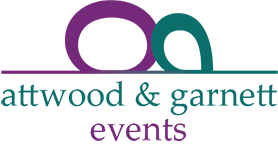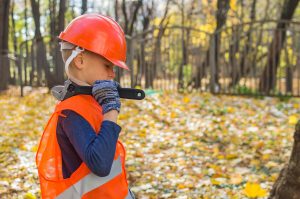NB: The names have been changed to protect the confidentiality of the mother and her family.
Dear Belinda,
You are facing the biggest most important challenge of your life now. You did not expect it or ask for it. But you are well prepared for it.
Your daughter has a life-threatening illness. She has had it since she was nine. It means that she has had 4 1/2 years of thinking like an anorexic person, and six months of severe weight drop and starvation brain.
Luckily, she was diagnosed when she was 13 years old which is counted as an early diagnosis, regardless of when the anorexic thinking started. The chances of recovery for an early diagnosis significantly increase from 50% to 90%.
Recovery is more likely when parents are united, parents feel confidence and determination in fighting the anorexia, and a variety of foods are eaten throughout the recovery process.
At the moment, and this varies, your main concerns and fears about Chloe’s recovery are that you feel fearful that you are not up to the task of assisting her to recover, and that you are fearful that your anxiety will be felt by Chloe and undermine therapy. You are right to have these concerns, both will undermine her recovery.
The way forward is to replace anxiety with determination, use the fear to galvanise your energy to learn the skills, get educated about anorexia as much as possible, support Michael (partner) in his efforts and skill acquisition and work together as a team.
What works is getting her to eat a variety of foods often. You have already succeeded in phase 1. Anorexia is creeping back, where you are allowing Chloe to choose her foods, and unsurprisingly she is choosing her old anorexic foods. Her old anorexic foods include: Tuna in springwater, green beans, bread without butter, sugar, no creamy sources for example lasagne, spaghetti carbonara, tuna Mornay. Surprisingly and thankfully she can eat pepperoni ham and cheese pizza, a roast dinner with roast potatoes, bangers and mash and spaghetti bolognaise, but she is halving her portions and this needs to stop. You choose the portions, not Chloe, because at this stage Chloe is still often overrun by anorexia.
In the future it will help me to use these mantras:
Chloe needs me to help her. She cannot fight anorexia on her own.
The only way to get Chloe back is to get her to eat a variety of foods, no matter how afraid she is of them.
She is scared of breaking her own rules about food, feeling lack of control, and as a result of her fear she cannot make appropriate decisions. Don’t ask her to and don’t expect her to.
I can get through this one meal, one day at a time.
Chloe needs me to get through this.
Her aggressive behaviour is a cry for my help.
Anorexia is tormenting Chloe, all I have to do is feed her.
This is exposure therapy, we are facing the fear together and I am determined to help her get through this.
What I am asking her to do is reasonable and the only cure for anorexia, no matter what she says.
Keep using the same methods, even when she tells you they are boring and don’t work. That is the anorexia talking.
She is terrified, even though she denies fear and anxiety. That is anorexia.
If you are intimidated by anorexia, she will be. Do not be intimidated by the anorexia, it is just a set of thoughts, it is bullying, rude, obnoxious, relentless and clever. But it can be worn down with consistency, love, calmness, and compassion. You need to be repetitive and incredibly persistent. When you need thanks for your efforts, vividly imagine Chloe as a recovered adult thanking you from the bottom of her heart for rescuing her from anorexia, the ghastly bully.
The way Chloe’s fear and anxiety manifests is anger, rudeness and belligerent. Anorexia is driving the fear, and she feels the need to gain control because she is terrified.
I am bigger, stronger, and better than anorexia, I can beat anorexia and help Chloe to beat it.
I can help Chloe manage the biggest fear she can ever have.
It is so hard for Chloe to break her own food rules because:
1. She is scared. She is scared that when she starts eating the fear foods she won’t be able to stop eating them. She is scared of losing control because anorexia makes her feel in control. She is scared of losing her identity because anorexia has given her an identity. This fear is so great it consumes her thinking throughout most of the day. His thoughts are so all consuming that she uses the telephone and lying in bed to block them and would rather be dead than have them. She is terrified but does not know that is what is consuming her, and that is what she needs to overcome. But I know it, and I am determined to help her.
2. She is anxious. She not only has anorexia but also is autistic, has a comorbid mood disorder and anxiety disorder, like many children with anorexia. These pre-existed before anorexia. She uses control of food to control her anxiety. This is the road to death. I need to help her manage her anxiety by eating, as an exposure therapy, to teach her that she can cope without restricting her food.
3. Chloe is dealing with the constant internal dialogue of anorexia. It is constantly telling her that she is going to be fat, if she eats she will get fat, she is ugly, and no one will like her because she is fat and ugly and has no control. Her anorexia tells her that she cannot trust me, I am against her and I only want to make her fat. She has learned to trust anorexia as her only friend, and it has become her identity. It is the way she feels special and in control.
There is a part of Chloe that tells her that she is hurting, and she is upsetting me, and that I really love her and that I want her to get better. But that voice is so small because of the background noise of anorexia. She is trapped in a no-win situation. If she eats, she makes me happy but anorexia will punish her a lot later, for 2 to 3 days. If she stops eating, she knows she hurts me. The pain is unbearable.
4. Chloe is governed by countless self-imposed rules. She has developed these rules to feel safe and in control. The more she follows these rules and loses weight the more rigid the rules become. The rules are fixed and must be obeyed at any expense. My job is to discover these rules and commit to a schedule of exposure therapy to teach her that she can live without these rules.
5. Chloe has a starved brain, because of the starvation that was prolonged and resulted in brain shrinkage. Some of the effects of her brain shrinkage are impairment in the frontal lobes, impaired judgement, insight, concentration and decision-making, that is why she is so unreasonable and irrational. Her insula has also been affected which gives her an exaggerated sense of fullness, a distortion of body image and difficulties in the integration of her thoughts and feelings. She also has a heightened sense of disgust.
6. Chloe has certain personality traits that contributed to and now maintain her illness. These include her perfectionism, where she can never be good enough or do well enough, this increases her distress and contributes to the maintenance of the illness.
She has cognitive inflexibility which means that she has difficulty shifting sets, so she gets stuck in certain maladaptive behaviours even when these maladaptive behaviours no longer work.
She has poor central coherence, she over focuses on the detail, and misses the bigger picture. This means that she over focuses often on details about food and herself that she finds disgusting or intolerable and cannot shift her focus to the bigger picture. She over focuses on certain aspects of a person and whether she likes those aspects or not, without regard for the overall relationship and the meaning of that relationship to her.
The best way to get Chloe to eat is to provide direct eating prompts that are aimed at directly pressuring her to eat, including “you need to eat all your lunch” or “pick up the toast and eat it.” These prompts have been found to be vastly more helpful than anything else including non-direct and encouraging eating prompts, for example “keep going” or “why don’t you eat some more.” Physical prompts, for example, pushing the plate toward her. Restrictive response for example saying don’t eat any more now. Positive incentives, negative incentives, autonomous comments that give her choice, or providing information about why she should eat do not work as well as direct eating prompts. Be repetitive, ignore her protestations, direct prompts to eat are the way to go.
Chloe needs to eat a variety of food. She used to love vanilla yoghurt, flavoured popcorn, tuna Mornay, lasagne, fried rice, chicken, spaghetti carbonara, eggs, bacon. There are certain foods that she dislikes, i.e., pancakes, spicy or over flavoured food, and it is fine to respect her previous dislikes. However, her current diet needs to include these varieties of food, regardless of her protestations which are excuses about not wanting to eat them because of her fear. Anorexia is all about fear, regardless of what Chloe tells you.
Parental unity is probably the most important skill required to manage Chloe’s anorexia. The best chance we have of defeating the illness is by presenting a unique united front against anorexia. We need to make decisions jointly, and we both need to provide a consistent message regarding every aspect of refeeding, our expectations of Chloe and her behaviour. Enhancing parental authority is critical and one of the strongest predictors of recovery. We need to have the same emotional response to Chloe. Responses that are not so effective are apathy, where it is evident that I do not understand what is happening for Chloe and therefore am not connected to what Chloe is feeling.
Sympathy, usually means being too distressed and suffering together, it gives a message that it is so hard for her that we just can’t make it any harder so we don’t insist that she eats. We just sit and share the suffering together.
Empathy is connection through shared understanding. However, this can lead to make eating as easy as possible for Chloe so we both agree to whatever makes both of us happy which is usually anorexic or safe foods. You see some improvements with empathy, but you’re both stuck, this is what you do too much. She will never attain full recovery with only empathy. Full recovery means normalised, healthy eating and this won’t occur if Chloe never becomes comfortable eating everything, including all the foods that she ate prior to the anorexia.
You are aiming for compassion. When you are compassionate, you really understand Chloe’s predicament, you really understand what she is battling against, but you also understand that if you don’t get your child out of this predicament she will never recover and never lead a normal adolescent life. With compassion I will be resolved to make things better for Chloe no matter how hard it is. The message I will give her is I understand you, and I feel with you, but I am going to get you better. I am going to get you out of that place where you are so stuck.
It will be difficult to give Chloe compassion because she does not want it. This is when you use your mantras as above.
In the problem-solving response for Michael and me it is important that we review and celebrate every success, clarify any problems and determine what went wrong, brainstorm new options together, identify and validate each other’s strengths and challenges, develop a plan and a backup plan, and implement the plan. Then afterwards, review and celebrate success and start again. We need to do this over and over.
We need to provide a consistent and reliable environment for Chloe so that she feels safe to explore and push the boundaries knowing that we are available if she sometimes fails. We need to be authoritative and nurturing so that she can develop trust and confidence in us. Nothing is more frightening to Chloe than feeling out of control compounded with the knowledge that her parents also feel out of control.
Unfortunately, anorexia makes Michael and I feel out of control. However, if we show signs that we are intimidated by the anorexia or Chloe’s behaviour she will feel she cannot depend on us and that we have abandoned her when she needs us the most. Also, our display of being intimidated by the anorexia can make her feel she is all powerful and therefore the only person who can keep herself safe. If she can’t depend on us to help her feel safe, it only leaves the anorexia to depend on, so she will continue to be ruled by her anorexia. Also, this self-dependency and dependency on anorexia will also make her resistant to seek help from anyone else.
We need to respond to Chloe in a calm and non-critical manner even when she is to stressed and angry. I need to show her I am in control of the situation and that I know what I am doing despite internally feeling as distressed as her and very unsure about what I am doing. It is my firm belief that I am doing the right thing that will allow me to emotionally contain myself and make Chloe feel safe. It is so important that I convey to her that she is safe, and I will not let anything happen to her. whenever I feel that I am going to lose control and become angry, I will make an excuse and walk away and ask Michael to take over. If I get angry with Chloe, it will only make her feel guilty and it will send a message to anorexia that it is wearing me down and winning so all the anorexia needs to do is to continue any behaviour that frustrates me so that I will just give up and let anorexia win.
Sometimes I become so frightened by Chloe’s displays of anger and distress and I feel that when I push the food on Chloe it makes her even more distressed. I need to remember that this is only anorexia is way of keeping me distracted from what I need to do. The only way to relieve Chloe’s distress is to get her to eat a variety of food and maintain her healthy weight. I need to just stay on task and feed Chloe. Even though she may temporarily feel happy when I don’t make her eat more, internally she’s continually going to be tormented by anorexia and she will continue to be unwell and on a life track to suffering and potential death.
Chloe’s distress is like a wave, at the start of it I need to notice that her emotional energy is rising. It is good at this point to bring in a calming or distracting technique, like the cats or doing some drawing or talking about something that she enjoys talking about. Making her laugh is a good step. Mid wave she still has some capacity for distraction, and it may help at this stage. But at the crest of the wave when she is extremely emotional she cannot respond to distraction, logical reasoning. At this time I need to be available to stay with her, keep her safe, and stay calm and compassionate and consistent. It is about never blaming her or being critical of her. It is the anorexia that is creating the wave. Anorexia is about fear. I need to be calm to show her that she is safe and that we can together beat anorexia.
At this stage don’t feel guilty about spending every spare moment you have researching eating disorders through books, attending meetings, and going online. Connect with other families of sufferers. Knowledge is power, gain as much information as knowledge as you can to enable Chloe to recover from illness with your help.
You are a great mum, you have all the potential to assist Chloe to recover , regardless of your previous self-doubt or fear. You have done very difficult things before, and you have used your immense capacity, intelligence and determination to gain the knowledge and learn the skills necessary. This is the greatest challenge of your life and you are ready. Do it.
I will always be here for you.
With much love always,
Belinda



